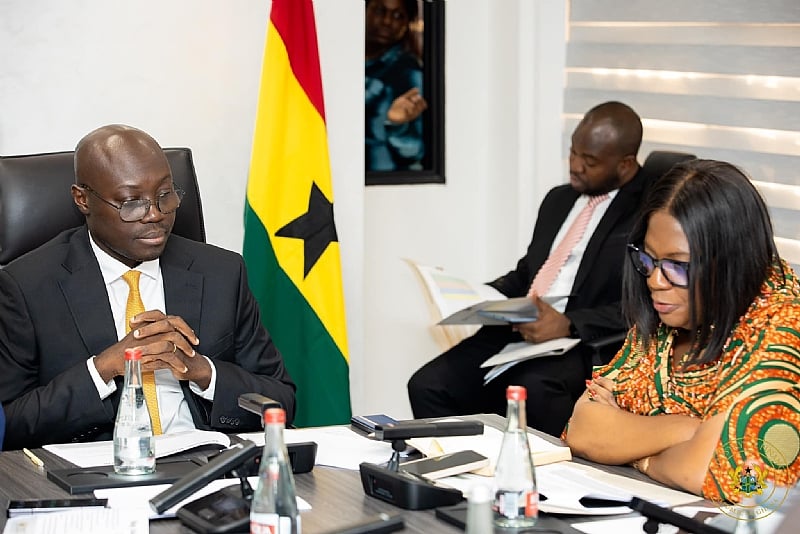Ghana’s fiscal landscape is poised for a significant overhaul in 2025, driven by the ongoing $3 billion Extended Credit Facility (ECF) programme with the International Monetary Fund (IMF). Finance Minister Dr. Cassiel Ato Baah Forson has announced an impending visit by an IMF staff team from February 10th to 14th, 2025. This week-long engagement marks a crucial step in aligning the government’s 2025 budget with the stipulations of the ECF and signifies the continued collaboration between Ghana and the IMF in navigating the country’s economic challenges. The visit will entail in-depth discussions on the implementation of the three-year programme and strategies for achieving key fiscal targets.
One of the focal points of the upcoming discussions will be revenue mobilization. As per the IMF agreement, Ghana is tasked with generating additional tax revenue equivalent to 0.6% of its Gross Domestic Product (GDP) in 2025. Dr. Forson has emphasized the need for innovative approaches to achieve this target, urging the Ghana Revenue Authority (GRA) to develop robust projections for the year. These projections will serve as a roadmap for identifying areas requiring adjustments and ensuring that revenue targets are met. This focus on revenue enhancement underscores the government’s commitment to fiscal consolidation and strengthening its financial position.
Parallel to revenue generation, expenditure management is also a critical component of the government’s fiscal strategy. Dr. Forson has directed the Controller and Accountant-Generals Department (CAGD) to rigorously scrutinize all expenditures, ensuring compliance with the Public Financial Management Act, 2016 (Act 921). This emphasis on stringent expenditure control reflects the government’s commitment to fiscal discipline and efficient allocation of resources. The Minister has indicated a shift towards prioritizing expenditure that fosters transformative growth and inclusive development. This strategic approach aims to maximize the impact of public spending on the overall economy and improve the well-being of citizens.
Ghana’s burgeoning debt, reaching GHS742 billion in June 2024, underscores the urgency of the fiscal reforms being undertaken. The debt composition, with 51.7% external and 43.3% domestic, highlights the need for a comprehensive debt management strategy. The IMF programme is designed to address the issue of debt sustainability, a key factor in restoring macroeconomic stability. The collaboration with the IMF is expected to provide technical expertise and financial support to help Ghana manage its debt burden effectively.
The Finance Minister’s visit to the GRA and CAGD, accompanied by NDC General Secretary Fiifi Fiavi Kwetey, signifies the importance placed on these institutions in implementing the fiscal reforms. Kwetey stressed the need for synergy between the two entities to address the debt situation. He highlighted the disconnect between earnings and spending as a contributing factor to the debt challenge and underscored the urgency of revitalizing and growing the economy. This call for collaboration emphasizes the need for a cohesive approach across government agencies to achieve the desired fiscal outcomes.
The leadership of the CAGD has expressed its commitment to supporting the government’s fiscal agenda. Director-General Kwasi Adjei pledged to enhance the country’s financial systems, bolster public confidence, and implement rigorous expenditure controls. This commitment from the CAGD is crucial for ensuring that public funds are utilized efficiently and transparently, further strengthening the government’s fiscal position and contributing to the overall success of the IMF programme. The concerted efforts of the Ministry of Finance, GRA, and CAGD, guided by the IMF’s expertise, are poised to reshape Ghana’s fiscal landscape and pave the way for sustainable economic growth and development.














